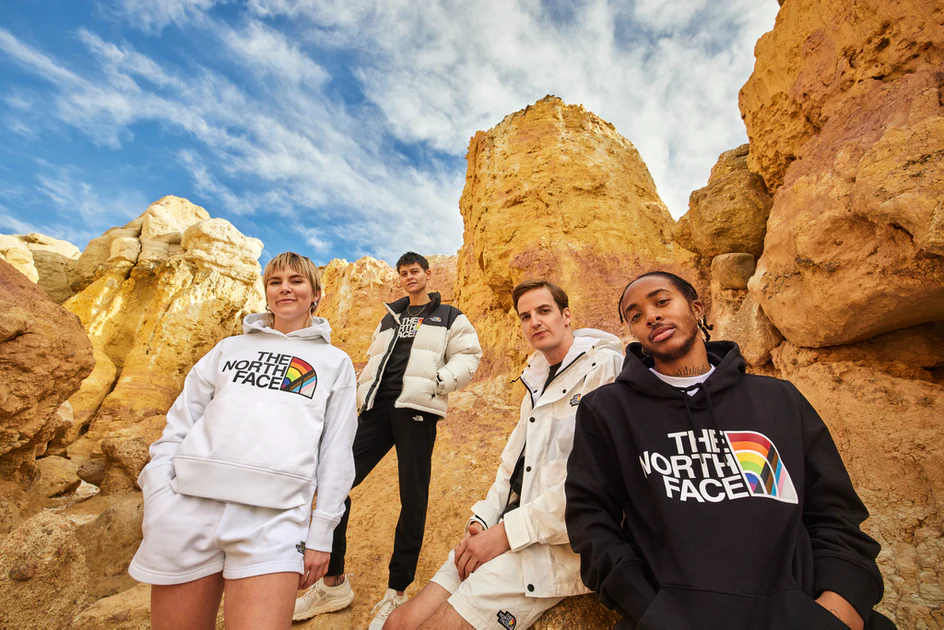The most important lesson from Bud Light and Target’s embarrassing decisions to disavow their inclusive marketing actually has nothing to do with Pride Month or LGBTQ people. Where Bud Light and Target went wrong is simple: they let a coordinated political attack, led by a handful of activists and extremists, take their businesses hostage.
In my decades as a corporate marketing executive, I learned a very important lesson: consumers respond to authenticity. Consumers want to know they can count on brands. Staying authentic and true to your values grows successful brands and loyal followings.
Bud Light has included LGBTQ people in ads since the mid-1990s, including a 2016 trans-inclusive national TV ad, and supported Pride events for far longer than that. The company even donated to GLAAD, the organization I lead, because they supported our mission to grow LGBTQ representation. When Bud Light was earning kudos from LGBTQ employees and making profits from a growing consumer base, they were fine to show Pride, but the second extremists spoke out, they moved from allies to cowards.
Here’s how Bud Light and Target lost their way. They shared LGBTQ and trans-inclusive content/products: great! With 500+ anti-LGBTQ bills proposed this year, a majority attacking trans people, the initial marketing from both companies was welcome and necessary. It’s not an easy time to be LGBTQ – my team counting more than 160 violent attacks and threats to drag events alone this past year. More than half of trans Americans don’t feel safe walking in their own neighborhoods. So however simple – a promotional, not-even-for-sale beer can, or products with rainbows and affirming messages – visibility and inclusion in your products and ads are powerful.
When a handful of extremists got wind of Bud Light and Target’s Pride plans, they pounced. These extremists spewed vile lies about each company’s inclusive work, even though Target has been a longtime public supporter of LGBTQ causes and has offered Pride products for more than a decade. T-shirts with rainbows do not turn children LGBTQ. They send messages of hope, belonging and Pride, something the extremists falsely stated is “toxic.” These are irrational voices of a fringe few.
Bud Light and Target confusingly made the wrong move. They decided their values were not as important as handing over the reins of their business to anti-LGBTQ extremists.
Target can move Pride displays to the back of some stores and Bud Light can change plans for social media campaigns, but LGBTQ people, including Target’s customers and employees, don’t get to hide who we are. We deserve allies who aren’t afraid to show everyone who they are.
Enter brands like Disney, the LA Dodgers, Nike, and the North Face. Disney’s Bob Iger moved swiftly to correct the company’s late support of LGBTQ people and against harmful legislation like Florida’s “Don’t Say LGBTQ” law. Disney proudly debuted its 2023 Pride products, with proceeds going to LGBTQ youth organizations. Last week, the Dodgers quickly realized that caving to a handful of outside extremists who tried to meddle with their Pride Night was wrong. The team apologized, and restored its original Pride Night plan.
Nike had a simple message after a few activists attacked its partnership with Dylan Mulvaney, the same transgender influencer who Bud Light refused to defend. After Nike received anti-trans comments, it pinned a comment on an Instagram post reminding people to be “kind.” “Hate speech, bullying, or other behaviors that are not in the spirit of a diverse and inclusive community will be deleted,” Nike wrote. Imagine if Target would have said violence and threats are not tolerated. What if Bud Light spoke up to encourage consumers to be kind? Nike CEO John Donahue recently explained: “If it’s core to who you are and your values… you stand up for your values.”
The North Face is perhaps the best role model for brands this June. The North Face’s Pride campaign featured a drag artist and received threats of a boycott. Rather than back down, the North Face doubled down on its values. And guess what? Since the brand made that clear statement, extremist voices died down. The brand isn’t facing the problems Bud Light and Target are.

I implore all brands to look to Disney, the Dodgers, Nike, and the North Face for inspiration. Stay true to your values. If you falter, it’s okay. Being an ally isn’t easy. Just make sure you correct course, and be vocal in reaffirming your brand’s values.
The risk of caving or doing nothing craters your company’s credibility and is a bottom line threat. LGBTQ people are the fastest-growing consumer market with an estimated $1.1 trillion in annual purchasing power. 20% of Gen Z are LGBTQ, and with their allies’ support, make up a remarkable workforce and customer base. GLAAD and the Edelman Trust Institute found U.S. employees ages 18-34 are 5.5x more likely to want to work at a company if it supports LGBTQ people. Americans of all ages are twice as likely to buy from a brand that publicly supports our community.
This Pride season, hundreds of brands are continuing to authentically support our community. LGBTQ people are strong, brave, beautiful, and most of all, resilient. We need brands to be allies. You’ll feel good doing the right thing, and may feel even better when you see your business succeed and your profits grow. The facts are clear on every front: LGBTQ people are worth it. Your support of us should always be something to be proud about.
This essay first appeared in Newsweek.













